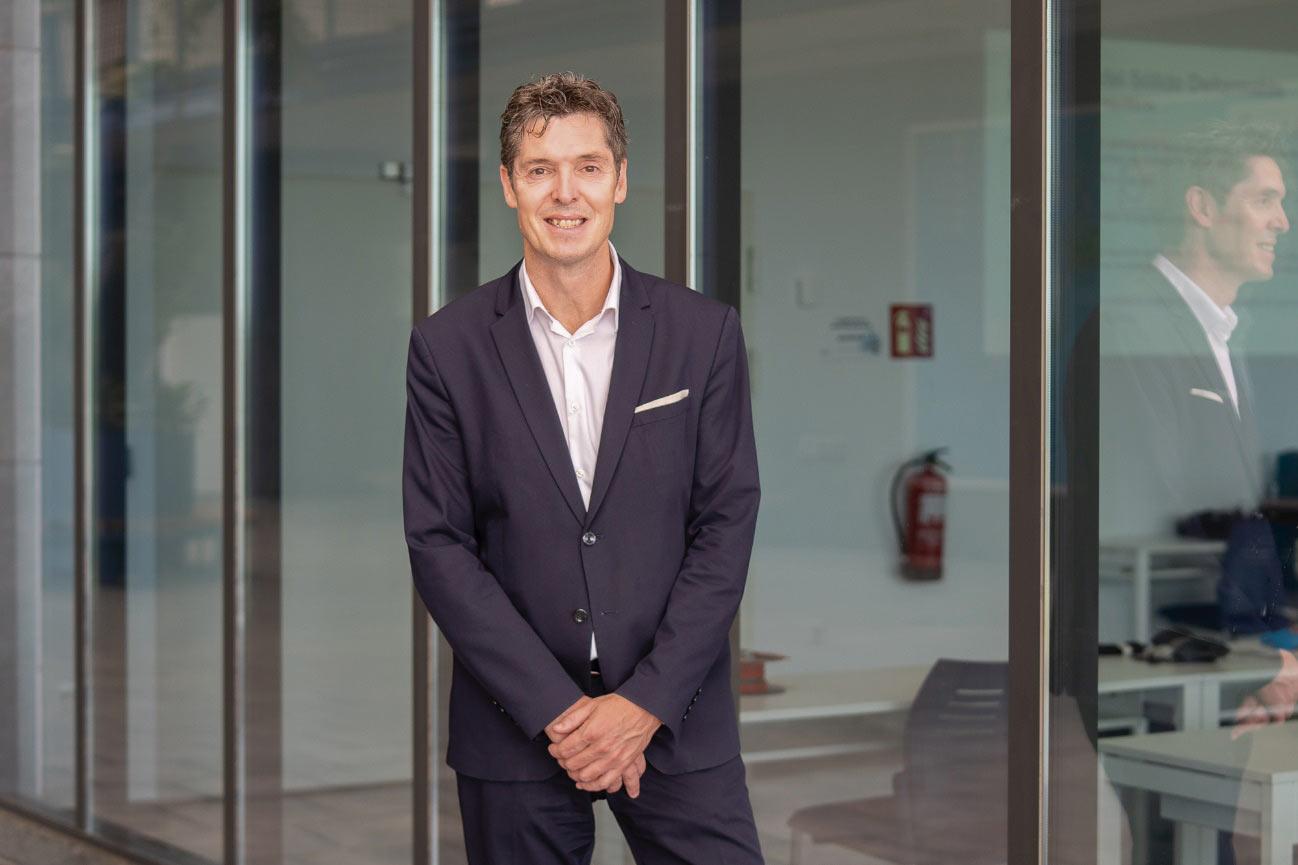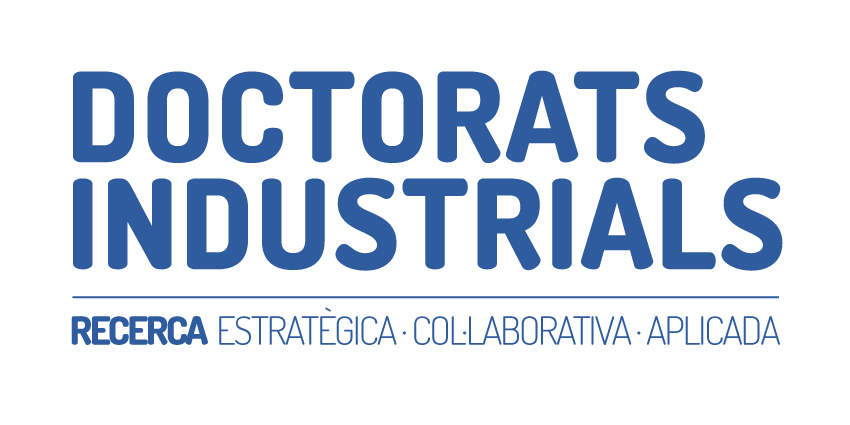"Els doctorats industrials combinen i hibriden el coneixement de la recerca més actual existent al mercat, de la mà d’una empresa que vol la part pràctica d’aquest coneixement"
Ton Guardiet, doctorand industrial i CEO d'Acceleralia Tweet

Ton Guardiet és un apassionat dels negocis, amb una àmplia experiència professional en llocs de màxima responsabilitat i emprenedor nat, tant que el resultat de la seva formació doctoral en el marc del Pla de Doctorats Industrials n’ha sorgit una nova empresa Acceleralia. El 2020 va seduir l’empresa PICVISA per desenvolupar una recerca col·laborativa amb la Universitat Internacional de Catalunya (UIC) que li va permetre formar-se com a doctor. L’objectiu de la recerca del projecte endegat era identificar els factors i les estratègies que més afecten l’èxit dels programes d’acceleració i d’emprenedoria, conceptualitzant-se tot en una metodologia, que finalment ha donat lloc al naixement d’Acceleralia, una plataforma digital per a l’acceleració corporativa.
Quin va ser l’objecte de la recerca en el projecte DI?
El Doctorat industrial que estic duent a terme està relacionat amb la meva passió pels negocis, l’acceleració i el creixement, així com la metodologia per aconseguir els objectius a temps. La finalitat de la recerca és crear Acceleralia, una plataforma digital per a l’acceleració corporativa, com a projecte de l’empresa PICVISA.
El meu propòsit és simplement compartir el que he après de moltes empreses i mitjans sobre com acceleren el seu creixement. Això inclou la creació d’una cultura intraprenedora i innovadora, liderat idees innovadores, i maximitzar la rendibilitat de les inversions. Tot això es barreja amb coneixements tècnics i criteris objectius, i l’actitud d’afrontar les tendències empresarials i l’evolució del mercat.
Quin creus que és el principal benefici de fer un DI a l’empresa?
Principalment, portar el coneixement de la universitat i la recerca al mercat. Són dos mons separats, i és en un Doctorat Industrial on es poden trobar: la universitat dona suport en la recerca i l’empresa alineada aportant la realitat de mercat, i evidentment alineada amb el tema de la investigació.
Què t’ha aportat els estudis de doctorat? Són un actiu valuós per esdevenir competitius en l’economia actual, basada en el coneixement?
Sí, és un actiu important per esdevenir competitius en l’economia actual. Combina i hibrida el coneixement de recerca més actual existent al mercat, de la mà d’una empresa que vol la part pràctica d’aquest coneixement. Puc aprofundir en allò que m’apassiona, amb la implementació pràctica del que anava descobrint durant la recerca.
En el meu cas concret, el coolhunting (el que està per arribar), el business hunting (captar oportunitats de negoci a altres mercats que encara no han arribat), les noves tecnologies o la velocitat de mercat, són conceptes que obren noves finestres de mercat, noves posicions en el mercat laboral, nous oceans blaus i noves oportunitats a moltes indústries.
Un valor afegit del doctorat industrial és la formació en competències transversals en àmbits no acadèmics. Pot afavorir i impulsar l’emprenedoria aquesta formació?
Sí, així és. En aquesta formació hi ha hagut cinc mòduls de formació: lideratge, coordinació i gestió de projectes R+D+I, negocis internacionals, valorització i transferència dels resultats de la recerca, protecció dels resultats de la recerca (propietat industrial i intel·lectual) i emprenedoria i fonts de finançament.
Aquestes temàtiques transversals són necessàries per complimentar la formació d’investigació orientada al mercat, amb la finalitat de generar coneixement sobre el full de ruta a seguir per dur al mercat tecnologies o metodologies derivades de la innovació.
És una formació amb un enfocament eminentment pràctic, que pretén la implicació activa i la interacció dels participants. En les sessions, el contingut teòric s’explica a través de casos pràctics.
Crec que per doctorands que s’han especialitzat en altres disciplines, és una capa de coneixement imprescindible, perquè si no el coneixement només queda guardat en un calaix o en una comunitat tancada lluny del mercat i aquest curs vol precisament millorar això.
Com vas emprendre aquest projecte?, com aconsegueixes “vendre el projecte” a l’empresa?
El projecte es ven a l’empresa, perquè Picvisa té un gran esperit innovador i una direcció oberta, decidida, potent i amb ganes de fer grans coses, i en aquest marc, el tema va encaixar.
De fet, la temàtica de recerca és fascinant i està molt alineada amb la meva experiència professional: 5 direccions generals d’empreses, amb 6 inversions prèvies i mentoritzat més de 500 projectes d’empreses emergents. Tot plegat, sumat a la meva formació acadèmica, un postgrau en direcció i direcció d’empreses i un altre en Finances i Inversions als EUA, un Executive MBA a ESADE, i finalment amb aquest doctorat industrial sobre plataformes digitals per a l’acceleració, esdevenia un mix perfecte per poder conèixer més i practicar els nous aprenentatges.
En definitiva, volia afegir una nova capa de coherència i coneixement a un sector que m’apassiona.
Quins són els principals reptes que un doctorand/a ha de fer front per emprendre? Quin consell li donaries?
Un doctorand i un emprenedor no sempre tenen els mateixos ingredients i aquest és el principal repte, saber si tens fusta d’emprenedor o estàs disposat a provar-ho.
Els aspectes positius de fer-se emprenedor són diversos: ets el teu propi cap, emprendre i muntar un negoci suposa un aprenentatge constant, conèixer nous contactes (clients, proveïdors i socis), també permet gaudir de molta més flexibilitat pel que fa als horaris laborals. A més, les tasques a realitzar poden ser molt variades, i cada dia és diferent. Si et va bé, et pot suposar una bona rendibilitat, i si tires endavant un negoci original, que destaqui de la competència, pot suposar importants beneficis econòmics.
Per altre cantó, també hi ha alguns aspectes negatius, ja que emprendre vol dir molta més dedicació, el cap connectat 24/7/365 o assumir majors riscos econòmics. Hi ha altres assumptes, com les obligacions personals d’habitatge, fills, escoles, o altres, val a dir que no és fàcil. També s’ha de poder gestionar la incertesa, al final la responsabilitat final, inclús legalment, també de les decisions que prenguis.
És un món apassionant, ple de riscos però també d’oportunitats. No és vàlid per a tothom, però si es té l’esperit i el context ho permet una mica, limitant el risc, val clarament la pena.
En quin punt t’adones que crear una empresa és una opció?
Aquest projecte de doctorat industrial ha portat a l’startup Acceleralia perquè s’han donat un conjunt de circumstàncies. Per un costat, el tema de la recerca que consistia a dissenyar una plataforma digital per a l’acceleració corporativa: Acceleralia, el cas pràctic de l’empresa PICVISA que participa en el doctorat industrial. Per altre costat, el director general de l’empresa, Joan Manel Casamitjana amb el seu equip directiu, han anat donant forma a les primeres versions del que anàvem fent i validant-les amb el mercat, identificant els elements a canviar, millorar o potenciar. Finalment, crec que el meu perfil personal i professional també hi té a veure. Tinc molta experiència en aquesta indústria, i jo mateix vaig empènyer per a portar-ho a la pràctica amb il·lusió i determinació.
Quins factors creus que han afavorit la posada en marxa d’una empresa durant el projecte?
D’entrada, l’evolució de resultats és un factor que influeix. El suport de l’empresa PICVISA, implicada en els inicis amb tres projectes pilot en el doctorat, es va adonar que si canviàvem coses o les milloràvem, allò començava a tenir sentit. Posteriorment, es van anar implicant noves persones en el procés qui van alimentar el projecte amb feedback de valor.
Des d’un punt de vista financer, en el moment que ja teníem un producte mínim viable (MVP), vam disposar de dos factors financers facilitadors molt determinants: ENISA, un préstec participatiu de l’administració pública, i també guanyar un CDTI, exactament el programa “I+D Transferència Cervera”
En darrer lloc, pel que fa al mercat, vam començar a explorar la possibilitat d’oferir el MVP inicial a contactes propers. Vam observar que si ho continuàvem treballant, podia encaixar bé al mercat i esdevenir una startup amb possibilitats d’èxit.
Consideres que la creació d’una empresa és una bona concreció del doctorat industrial?
Crec sincerament que és evident que els resultats són bons, un fet que ha portat a tenir inversors, suports institucionals, clients, proveïdors i posteriorment empleats. S’ha creat una empresa, amb el mateix nom que el projecte de Doctorat Industrial, on s’han invertit prop de 900.000 euros entre diversos inversors privats i institucions públiques. Ara per ara, s’està treballant al metavers amb unes vint persones de deu països diferents.
Tots aquests resultats sumats són un bon exemple del que pretén el Pla de Doctorats Industrials: transferir el coneixement des de la universitat i la recerca fins al mercat, amb impacte real a la societat.
Quins són els valors fonamentals d’Acceleralia i com guien les teves decisions empresarials?
Acceleralia és una plataforma digital Deep EdTech del sector educatiu situada a Barcelona. El seu objectiu és ser un element disruptiu en el sector educatiu amb una nova categoria d’indústria que l’hem anomenada “accelerated learning management System” (ALMS) on es combinen elements d’acceleració empresarial amb el món educatiu. La idea és accelerar l’educació personalitzada de manera senzilla i convertir-nos en l’estàndard dels ALMS transformant aprenentatges amb resultats tangibles.
El treball en equip, reptar l’statu quo, ser humils escoltant al mercat, empatitzant i adaptant-se a les necessitats dels clients són els valors que ens mouen. Les meves decisions empresarials les baso en el respecte al genial equip que tenim, empoderant el talent intern, molt d’esforç i amb l’ambició de ben aviat convertir Acceleralia en una scaleup a molts països.

Com ha sigut la teva experiència amb els DI?
Molt interessant, intensa i plena d’aventures. Val la pena dir que no ha estat exempta de dificultats, la meva experiència ara com ara és que la universitat i el món empresarial encara parlen llenguatges diferents, i això comporta un esforç afegit per part del doctorand.
En definitiva, recomanaria aquesta experiència a qualsevol doctorand. Però també recomanaria que procuri alinear el tema del seu doctorat industrial al seu camp d’interès que l’apassioni. Es treballa molt, i tenir una motivació intrínseca potent és un gran facilitador.
Només em queda agrair a la universitat a la Universitat Internacional de Catalunya (UIC), els tutors del projecte (Anna Akhmedova i Ioannis Pierrakis), persones d’administració de suport (Oscar, Mònica, Judit). Per part de l’empresa PICVISA, el meu agraïment al director general Joan Manel Casamitjana i al seu equip: Lluis, Susana i Silvia. Del Pla de Doctorats Industrials a tot al seu equip: Jesús, Ainhoa, Xavier i Jordi que sense cap dubte han ajudat a fer que aquest somni hagi esdevingut una realitat.
Moltes gràcies i felicitats pel programa.

